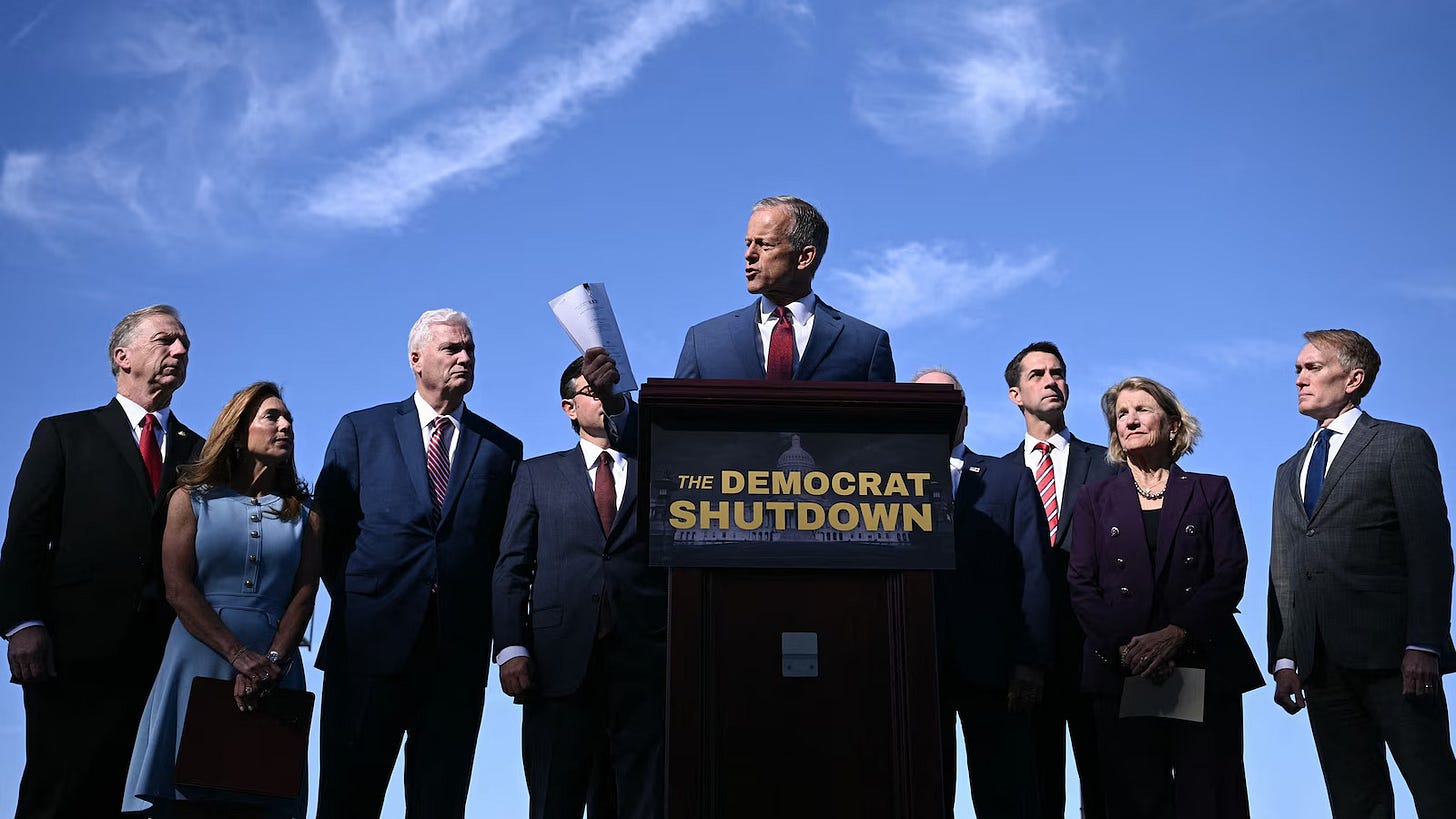SNAP benefits are not enough for the poor
What Pope Leo said about the personal dimension of poverty
The government has been shut down for 30 days. You might not have noticed, but this weekend, 45 million Americans will.
45 million Americans receive SNAP benefits to assist with groceries and that money is set to run out on November 1.
We don’t know if Congress will restore them. But if they don’t, Catholic parishes across America need to be ready.
Because contrary to popular belief: The Catholic Church—not the US Government—is the best-equipped organization to provide aid to the poor.
The Real Problem with Government Aid
When we talk about welfare programs, we usually limit the discussion to the practical: Does SNAP work or does it not?
Pope Leo XIV’s recent exhortation on poverty suggests a different angle entirely. He calls welfare programs “provisional measures”—not permanent solutions. (Dilexi Te, 94) He says aid to the poor must treat them as subjects—as people, members of our community—rather than merely objects of our giving. (Dilexi Te, 100.)
Limiting the discussion to the practical is dangerous. A massive, nation-wide system to address poverty inevitably has limitations. There’s fraud. People who don’t need assistance receive it. Some recipients become comfortable in dependency rather than moving toward stability.
When we try to solve the practical problem of poverty, we will fail. Because it is not merely a practical problem. Poverty is a personal problem. The poor need charity, charity is love, and you cannot love someone you do not have a personal relationship with.
The practical problem of poverty is solved after the personal. We are only able to know how to serve the poor after we meet them and befriend them.
What Real Charity Looks Like
There’s a soup kitchen in my community that’s been running for about 40 years. Recently, the director running it realized the homeless people they were serving had become dependent on the daily meal. They weren’t moving toward stability. They were settling into homelessness.
He figured this out because he spoke to them. He knew them personally.
Once he understood what was actually happening, he changed the model. Instead of serving daily meals in one main location, they serve food out of a food truck that moves around town, cycling through locations. It’s enough to survive and thrive on, but not enough to settle into. The shift worked. People started moving out of homelessness.
This kind of change is only possible through personal encounter. You can’t see patterns if you’re focused on processing paperwork or even just ladling soup. You can’t know what someone actually needs if you’ve never had a conversation with them. And you can’t transform a life from a distance.
Pope Leo’s exhortation makes this clear: we’re not called to love the poor in the abstract. We’re not called to love them in the voting booth or even through check-writing. We’re called to love them personally, by getting to know them, by encountering Christ in them.
Your Parish, Your Neighbors
1 in 8 Americans receives some form of nutrition benefit. That means it’s likely one of them is sitting in your church this Sunday.
Right now, before November hits, Catholics should be asking around. Find out who in your community is struggling with groceries. And then deliver them yourself. Get to know these people. Make friends with them.
If you’re in a position to organize at the parish level, even better. A simple phone drive—calling parishioners to ask if they need help or if they can help—works. My parish did it during COVID and it worked well.
The Church is the solution to a person’s poverty (not poverty as a whole, the poor will always be with us). Bureaucracy cannot solve it. Because only the Church is capable of addressing both the practical and personal dimensions of a person’s poverty.
Welfare programs can be shut down. Christ’s Church never will be.




You read my mind. I thought of this a few days ago. You wrote of it better though. I might stop and talk to our priest today🙏
While you make some good points about not treating the poor as objects...I think some of your arguments don't work as well when you realize a larger portion of that 1 in 8 Americans are children.
SNAP helps far far more people than just the homeless population which is what you focused on with the soup kitchen analogy.